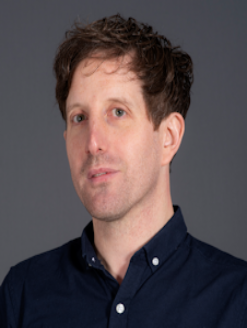Postdoc fellowships
The Department of Politics and International Relations welcomes outstanding post-doctoral candidates to apply for externally funded schemes in order to undertake a post-doctoral fellowship.
The Department offers many career-development opportunities to post-doctoral fellows and will provide significant support to your research project and career progression while you are here.
Our research environment is ambitious and lively, but also friendly and supportive. Our expertise spans the discipline and an array of interdisciplinary areas. Current concentrations of research expertise include political theory, comparative politics, public policy, peacebuilding, global development, international security, human rights, international political economy, environmental and gender politics. We host three internationally renowned research centres, the Centre for Applied Human Rights, the Interdisciplinary Global Development Centre, and the York Centre for Political Theory.
The Department of Politics and International Relations at York is committed to the Athena SWAN Charter and was awarded an Athena SWAN Bronze Award in May 2018 for its commitment to gender equality.
If you are interested in pursuing a postdoctoral fellowship in the Department of Politics, please complete this enquiry form Please note that we are unable to support all externally-funded schemes.
Once at York, you are expected to actively contribute to the research ethos of the department, by participating in activities related to our ongoing research agenda and organising activities advancing your own research interests. As part of your career development, it is important that you also undertake some teaching.
ESRC
ESRC Postdoctoral Fellowship
This scheme supports a postdoctoral fellowship for up to one-year full-time (or 2 years part-time) to give fellows the opportunity to prepare for a successful career in research either within or beyond academia.
There is 1 call per year for outline proposals, typically in January.
This call is open to applicants who have undertaken their PhD at a research organisation that is part of an ESRC DTP or CDT, and who will have no more than 12 months of active postdoctoral experience by the closing date for full proposals, or who will have submitted their thesis and passed their viva voce with minor corrections by the full proposal deadline, with the expectation that the PhD will be awarded by the start of the Fellowship.
Further details are available at the ESRC postdoctoral fellowships website
11 December 2024, Briefing session information - ESRC White Rose Postdoctoral Fellowship
British Academy - Fellowships
British Academy - International Fellowships
This Postdoctoral Fellowships scheme is for outstanding early career researchers who are within three years of their PhD to undertake a three-year research project.
There is one call per year for outline applications, typically in September/October.
Leverhulme Early Career Fellowships
This fellowship is aimed at early career researchers, with a research record but who have not yet held a full-time permanent academic post, to undertake a significant piece of publishable work.
Applicants must have entered into correspondence with a proposed mentor - see the Academic Staff pages
Find out more about Leverhulme Early Career Fellowships
Register your interest: Expression of Interest google form
Global Fellowship Testimonial
A Report from California by Kieran Durkin
The end of the first of my two outbound years at UC Santa Barbara is fast approaching. It has been a great experience of sun, seminars, public engagements, not to mention many conference and archival visits. The staff and students at UC Santa Barbara (a place where they have skateboard lanes and students go surfing on their lunchbreak!) have been incredibly helpful and welcoming. Professor Kevin Anderson and Lisa Blanco, and the entire support staff in the Sociology Department deserve especial mention, but the wider department, from graduate students to professors and the attendees at the regular Social Movements workshop have been part of what has been an inspiring experience.
As Marie Skłodowska-Curie Global Fellow researching the Humanist Marxist Tradition, I travelled to Trinidad and Tobago to vist the C.L.R James Collections at The University of the West Indies, St. Augustine, and the Oil Workers Trades Union, San Fernando, as well as to the C.L.R. James Papers at Columbia University. I also visited the New York Public Library, where they store part of Erich Fromm's literary estate, and Chicago, where the Raya Dunayevskaya Papers are held. The opportunity to explore the history of these central figures to the Humanist Marxist Tradition has been a real privilege, one that reminds me of the breadth of what Dunayevskaya spoke of as 'the dialectics of liberation.' This issue is something that will be explored at greater length in Dunayevskaya's Intersectional Marxism: Race, Gender, and the Dialectics of Liberation (Palgrave MacMillan, Forthcoming), edited by Kevin B. Anderson, Kieran Durkin, and Heather A. Brown.
The last few months have been particularly busy, including talks at the Science Studies Colloqiuem at UC San Diego, the Carribean Philosophical Association Conference at Brown University, and the Left Forum Conference at Long Island University, Brooklyn. Interspersed between these talks, have been regular presentations at the Poetic Research Bureau in Chinatown, on the edge of downtown LA, a place where academics and the general populace congregate to attempt to transcend the division between the sacred realm of the academy and the profane realm of the everyday world.

Support during your fellowship
- A supportive research environment
- A dedicated postdoctoral officer who represents the Department’s postdoctoral fellows in Department committees
- Access to additional sources of research funding
- Guaranteed interview for any suitable Departmental lectureship vacancy (for 3+ year fellowships)
For more information on what the University has to offer, see our Fellowships webpages.
